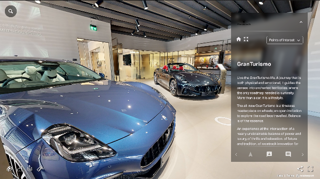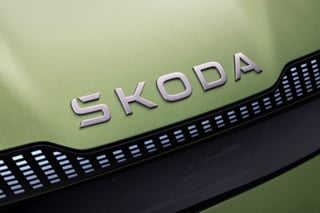How can the automotive industry better utilise big data?
"According to research and consultancy firm Forrester, creating an excellent customer experience is the number one priority for CMOs right now.
That sounds all well and good, but when you have a fragmented customer journey split across thousands of potential channels and touch-points, mixed with a longer-term purchasing cycle, such as in the automotive industry, it leaves marketers with a real problem. Attempting to recognise individuals, understand their needs and then react in real-time with the relevant response is therefore an increasingly complex challenge, if the correct tools and infrastructure aren’t in place.
"To do this effectively requires data. More pertinently; it requires smart data which automotive brands can utilise in order to better engage with customers and swiftly respond to their signals. With customers now able to engage online, on the forecourt, or via social media, CIOs and CMOs are now in catch-up mode and increasingly having to work more collaboratively to extract the insights they need to shape far better customer experiences, and meet steadily rising levels of expectation.
"It’d be easy to reach for the fabled Big Data, but for the automotive industry in particular, where customers don’t normally complete rash, spur of the moment purchases, brands more specifically need to connect data to understand at what point in the purchase cycle each individual is and then act or respond accordingly.
Even before the individual is a customer, brands need to recognise that their journey can begin a long time before they engage directly with a brand. If you’ve just purchased a new family car and then you receive an email or offer from the same manufacturer or different dealership notifying you of a better offer or discount, chances are you won’t be impressed. On the other hand, if you are in the market for a new car, checking reviews and searching social media for the best deals, then you’ll probably be glad to receive an email from a dealership notifying you of a promotion or test drive near you.
"Getting this right isn’t as hard as it sounds if you focus on what you can do and focus on what makes the biggest differences as there are a number of ways that automotive manufacturers can optimise the customer data they have available to them to enrich the customer journey to either acquire new or retain existing customers.
"In order to secure new customers, marketers need to capture the data around behaviours. It’s not about reacting to Big Data, it’s about reacting to smart data lurking within that Big Data. These key triggers are frequently referred to as key decision moments within the customer journey and they can look vastly different for each customer as they trawl through the huge amount of information available to them these days.
"To help make sense of all of this data, most automotive companies have got numerous customer segments which they need to send personalised content to in order to better shape the customer journey. This data then needs to be efficiently socialised across CRM platforms and brand teams to really make a difference to the real customer experience, as well as nurturing continuity and consistency across each channel.
"When it comes to turning existing customers into brand advocates, car manufacturers have a phenomenal new weapon in their arsenal. The connected car is something that has been spoken about for some time in the automotive industry, but now it’s firmly a reality, helping brands add further value to the customer relationship.
"In fact, according to The Telegraph, in five years there will be 250m connected cars on the road as the Internet of Things grows to include 25bn devices.
"This presents big opportunities for brands not only when gathering customer data but also tailoring a service to suit each customer. Of course, not every customer can afford or may want a car linked to the internet but it does let car manufacturers add a lot more value to their proposition.
"For example, Ford is set to launch a cloud-based service that will allow it to provide software updates and patches for audio, communications and selected navigation functions whenever the car detects a wireless signal, ensuring the user is kept constantly up to date with the latest product improvements.
"This is just one example of how the connected car is set to enrich the customer journey, but there are plenty more for an industry that is still yet to peak in maturity.
"Connected data isn’t just beneficial for marketers. Through a very high-level customer feedback, manufacturers can better understand how the car is being used and research and develop their products accordingly. The benefits of connected data and analytics are felt right across the business from sales through to manufacturing.
"The automotive industry was built on advertising and reach to promote cars and brands, however this is changing. Having the ability to offer a consistent brand experience across email, social media and in person at the dealership is going to be increasingly important to drive sales and loyalty for car brands.
"Those that recognise this from the onset will not only have more happy customers visiting their forecourts but will also secure more sales as a result. Now what automotive brand wouldn’t want that?"
Author: Jed Mole, European marketing director at Acxiom shares his views:

















Login to comment
Comments
No comments have been made yet.